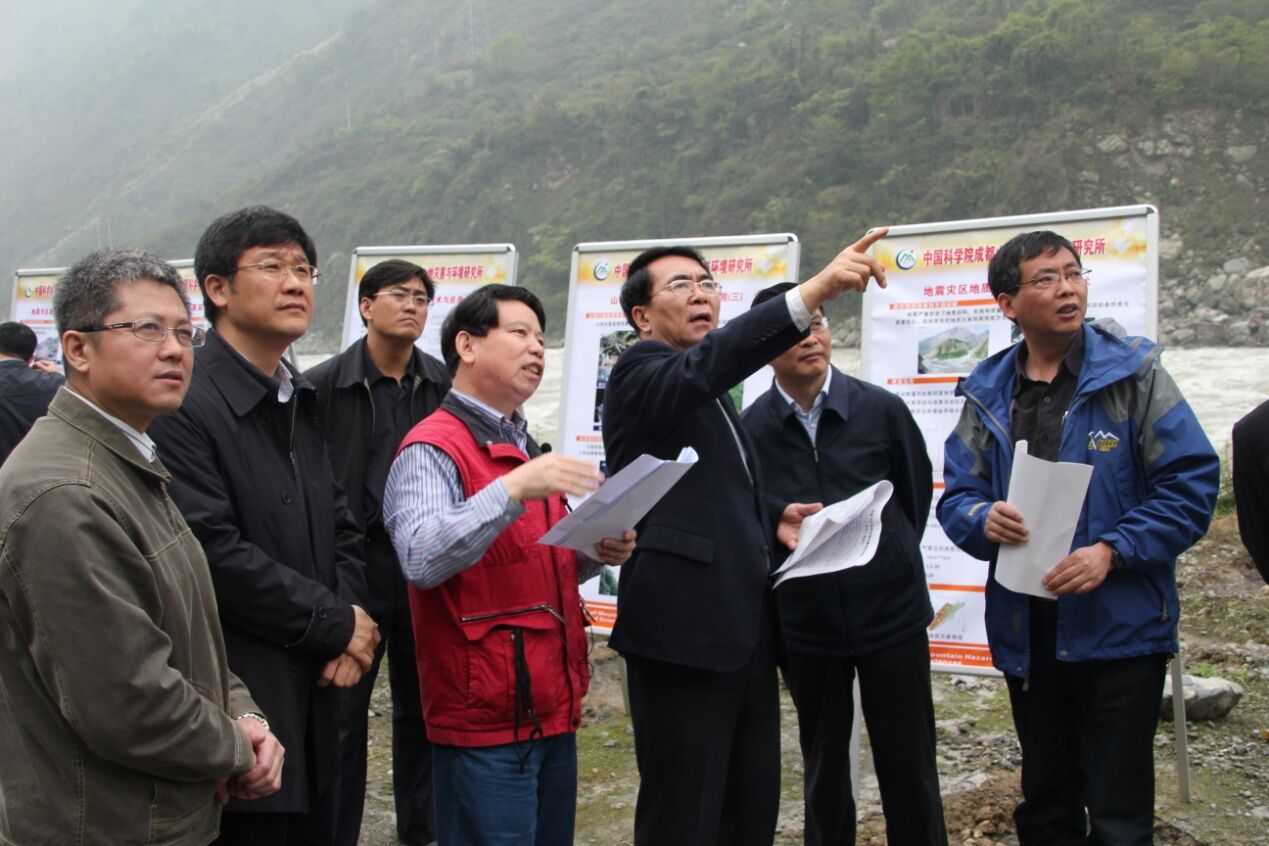Yanting Agro-ecological Experimental Station of Purple Soil (105o27’E, 31o16’N, 420m altitude), subordinated to Institute of Mountain Hazards and Environment, Chinese Academy of Sciences was founded in 1980. It is one of agro-ecological research stations of Chinese Ecosystem Research Network (CERN). The station is located in Linshan township, Yanting prefecture of Sichuan province.
Geomorphologically, it is typical hilly area in the central Sichuan Basin. The climate of the area is of mid-subtropical monsoon climatic type with annual average temperature and precipitation being 17.3℃ and 826mm respectively. The soil is typical purple soil (Regosols in FAO taxonomy) developed from Jurassic purplish shale which widely distributed along the Yangtze River. It is covered by mixed forest of alnus cremastogyne and cypressus funebris as major types of vegetation with scattered arbors and grass.
The population density of this area is 325 persons/km2. The per capita of land is 0.36 hectares in average, including 0.08 hectares of farmland and 0.16 hectares of forestry land.
Research Orientation and Key Point
Yanting station is oriented to make comprehensive studies on structures and functions of agro-ecosystem in the hilly area of purple soil in the central Sichuan Basin. Based on data accumulation of long term experiments, observation of ecological indexes of soil, water, climate and biology, integrated analyses will be conducted to find out ecological laws regarding to the energy transfer and material movement. Human activities and interaction with natural resources has been explored to serve the rational utilization of agricultural resources as soil, water, climate and biology so as to establish optimal management models of agro-ecosystem. All tasks would serve to provide scientific basis for overall management and exploitation of purple soil, and protection of environment of upper reaches of Yangtze River.
Present Emphases
Rock weathering processes and eco-environmental effects.
Soil fertility formation and evolvement of purple soil.
Cycling and balance of water and nutrient (N, P, K) the approaches to improve the utilization efficiency of water and nutrient.
Carbon and Nitrogen cycling and environmental effects.
Monitoring of soil, water, climate and plant in the hilly area of central Sichuan Basin
The adjustment of agricultural structure and development of green agricultural industry.
Mechanisms of non-point-source pollution and control measures.
Soil erosion and soil conservation.
Restoration of artificial shielding forestry ecosystem for Yangtze River.
Potential productivity of farmland and integrated management model for high yield of crops.
Staff
There are 13 full time employees including 2 professors, 4 associate professors, 5 assistant professor, 2 engineers and technicians. There are also about 20 guest researchers coming to work at the station every year .
Research and experiment conditions
Yanting station has a 36 hectares experimental field including 24 hectares farmland, 12 hectares forestry land. Major facilities and equipment for observation and experiments include: soil formation, nutrient cycling, agriculture, soil erosion and sediment yield, meteorological radiation, water balance and agro-forestry ecology.
A comprehensive building with area of 1000m2 can serve 20 permanent staff and 10 visiting scholars. All rooms are well equipped with working and resting facilities. The floorage for laboratories is 300 m2, including routine analysis lab, computer room, micro-biological room and soil physical lab.
Scientific Achievements
There are more than 50 items of national, provincial and other research projects undertaken since the foundation of Yanting station. They have got 30 scientific achievements with awarded by the Chinese Academy of Sciences and Sichuan province. More than 300 reviewed paper have been published. The Seasonal No-tillage Ridge Cropping System which was exploited by Yanting station has been extended for more than 100 million hectares in the upper reaches of Yangtze River.
Built in 1980, entering CERN in 1991, listed as the national key station of field observation in 2005, Yanting Station is the only CERN member of agroecology in the upper Changjiang and now the base of long-term research and popularization of advance agricultural techniques.
